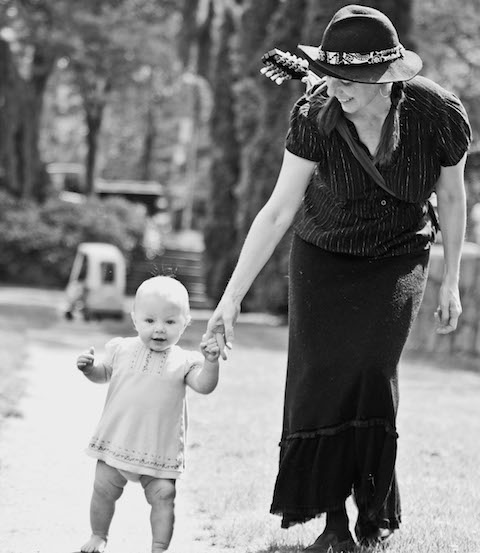For the first year of your child’s life, you talk to them, even though you know they don’t yet understand your words. You don’t expect a coherent reply; you know they are not yet ready to speak.
Their first sounds, perhaps as early as six months of age, are not recognizable words, just sounds like “ba” and “da”. You smile encouragingly because you understand these simple sounds are the building blocks of language, which takes years to master.
After months of making babble sounds, your child begins to put their sounds together to form their first words. It’s such an exciting milestone! And it took months of listening and practicing to get there.
Yet despite knowing how long it takes a child to learn the basics of language, many parents bring their child to a music class, and feel dismayed or discouraged that their little one does not immediately jump in to sing, clap or bang a drum on the first day.
Why would they, though? Music and language are closely related and are learned in a similar way. Yet parents often seem to have unrealistic expectations about how quickly a child should be able to acquire basic musical skills.
For instance, a child who is new to my Music for Tots classes will often simply sit and listen throughout the first class, or even the first several classes (entirely normal and appropriate). Yet I frequently have parents come up and apologize to me that their toddler didn’t participate more.
Worse, sometimes a parent or caregiver will persistently wave a shaker in their child’s face, or shove a drum into their hands, saying “SEE? SHAKE THE SHAKER!” or “BANG THE DRUM!”, and appear discouraged that all their child does is stare back at them, or put the shaker in their mouth.
This is because neither waving shakers in a child’s face nor forcing drums into their hands is a very effective method for teaching music. As with language, your child learns best by listening to and watching what you do. If you sing a song, or play a drum, or shake a shaker, your child will also learn to do these things. So the best way to teach your child music is by allowing them to watch and listen to you sing and play music.
“But I’m not a musician!” you insist. “How can I be a good musical role model when I (fill in the blank) don’t have a good singing voice / can’t find the beat / can’t play an instrument?” But the truth is, your child does not know or care about any of that. You may not be an eloquent public speaker like Barack Obama, but your child still learns to speak by listening to you. You don’t need to be Beyoncé or Wynton Marsalis. You just need to sing your child a lullaby, or play “Pat-a-Cake” with them, or dance the Chicken Dance.
Parents who bring their children to my music class consistently over time report to me that even children who are quiet listeners during class will sing the songs enthusiastically at home. It just takes time, and children will join in when they are ready. Families who actively sing, dance and play instruments with their children – in or out of music class – will undoubtedly see their children progress towards mastering such foundational music skills as singing a simple melody and tapping or clapping along with a beat.
For more information about my music classes, please visit www.misscharlottemusic.com.

